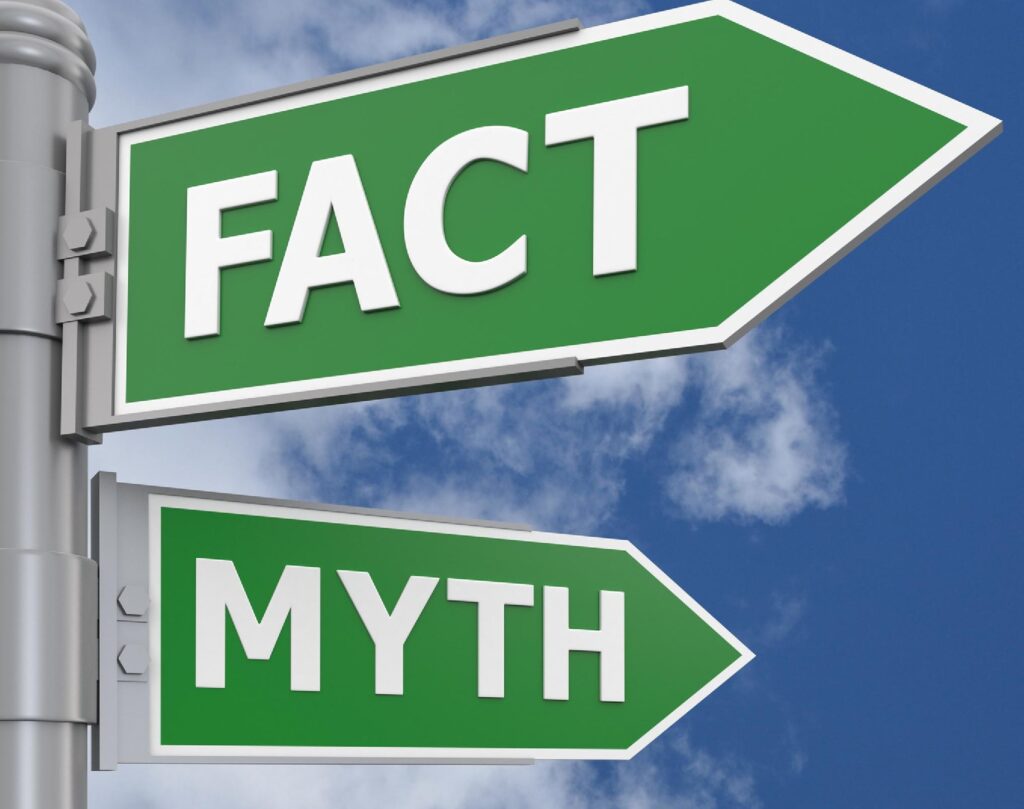

Individual
There are many ways you can plan for the future, whether it is making a will, inheritance tax planning or creating a trust. It’s a daunting process but if ignored can cause major problems for your family after your death. This is why it’s crucial that you take the time to plan and set your affairs in order.
Gorvins team of wills, trusts and probate solicitors in Manchester can support you with every legal aspect of planning your future, helping you protect your dependents in the event of your death or loss of capacity. We specialise in all matters relating to:
Handling cases across the country, our expert wills and probate solicitors offer straightforward and practical advice with sensitivity and care.
To get help today, call us on 0161 930 5151, e-mail us at willsteam@gorvins.com or complete our online form. We’ll discuss your requirements and you’ll receive tailor-made advice from our will solicitors to ensure you and your loved ones are protected.
We offer practical, friendly and in-depth advice on:
The last thing you want is for your wealth to be distributed in the wrong way, which is why legal advice regarding your will is so important.
Our wills and trusts lawyers have the professional knowledge, first-hand experience and practical legal knowledge to help you in a personal and cost-effective manner. We don’t treat every client the same. Instead, we take an individual approach to your case to ensure you receive the best possible service that is completely tailored to your needs.
Our Manchester-based wills and probate solicitors offer specialist advice that will help you protect your and your family’s future. Whatever your needs, we can help plan this for you in the most efficient manner. If you have disabled dependents, for example, we can advise you on all your legal options so that their future is fully secure, whether that’s financially or from a welfare point of view.
It’s sometimes tempting to use an unqualified service provider to write your will or help plan for the future, but this can lead to major problems further down the line. Gorvins have a large team of Wills and Trusts solicitors in Manchester with years of experience in estate planning, offering unrivalled knowledge on how to write a will.
We’ve built a terrific reputation as specialists in this field and have supported thousands of people to protect their futures and their families. We don’t talk in riddles, we provide jargon-free, understandable advice even when dealing with complicated matters, ensuring you understand every aspect f your legal matters.
All of our Wills, Trusts and Probate solicitors are either STEP qualified or training to become STEP qualified, demonstrating our dedication and determination when it comes to making sure we are in the best position to help you.
We’re members of Solicitors of the Elderly and Dementia Friends, meaning we can provide specialist legal advice for older and vulnerable people, their families and carers. If you’re looking for advice for making a will with dementia or any other conditions, Gorvins wills, trust and probate solicitors are expertly trained to help you put your affairs in order.
For advice, guidance and support, contact one of our will solicitors in Manchester now. We’ll listen to your problem, advise you of the next steps and approach your case with compassion and care. Contact us on 0161 930 5117, e-mail us at willsteam@gorvins.com or fill in our online form and one of our wills and trusts solicitors will be in touch to discuss your needs.
If you’d like more information on pricing for our probate services, please click here.
Wills, Trust & Probate













TESTIMONIALS
Excellent service from Mr Smoult. First class level of communication.
Julie (Burgess) dealt with us professionally and with kindness and patience. All matters were explained clearly giving us confidence going forward.
Stockport
Excellent solicitor firm. Especially Mike Smoult on probate and will - and also Martin Hoare. I recommend them wholeheartedly.
24th May 2023
Almas was clear and reassuring from the offset, always explaining so that we fully understood. Almas was extremely professional and was keen to put forward helpful thoughts and suggestions. Thank you so much.
Almas I would like to thank you so much for helping us and keeping us informed at all times. The service we have received has been outstanding.
Manchester
Many thanks for all your help and the manner with which you have dealt with my Aunt's estate this past 12 months. Almas you have been brilliant and I appreciate all that you have done to make the process as smooth, quick and clear as possible.
Bramhall
As everything is now completed we would like to thank Almas for all the work you have done for us. We are very impressed with the speed, efficiency and thoughtfulness with which Almas dealt with all that was needed. We feel Gorvins is a a name to be ... Read more
Stockport
Michael made us feel very welcome and was reassuringly sensitive and supportive throughout our will making journey. He also gave great advice to my husband’s parents.
Macclesfield
Very friendly and professional.
Poynton
I would like to thank everybody at Gorvins who assisted me in what was a difficult period in my life due toil health and a bereavement in my family.
Sale
I received a very professional service in a relaxed environment.
Stockport
My Will solicitor made some thoughtful and helpful suggestions which I considered and accepted.
Bramhall
The service I received was excellent.
Alderley Edge
I have dealt with Gorvins for 25+ years and have always found the service to be excellent.
Nether Alderley
The advice received was clear and straightforward. What could have been an anxious experience became clear and reassuring.
Stockport
The service was completely flawless; one of the advantages of using professionals rather than Will Writers.
Macclesfield
The process is often quite simple. It generally starts with an initial meeting. If possible this would be a face to face meeting at our office, but that depends on your circumstances.
At the end of that meeting, we should be able to tell you what your Will is going to cost. In most cases, this will be on a fixed fee basis, so there are no surprises. The next step is for us to draft the Will and to send it to you with a letter of advice. This explains, in plain English, what your Will does.
Once you’re happy with the draft Will and have answered any questions that we might have raised in our letter to you, we will need to meet again. At this second meeting, we will answer any questions that you might have, discuss the Wills generally and arrange for them to be signed.
Wills need to be signed in a very specific way. They need 2 witnesses. It is better if one of those witnesses is a solicitor, in case there are problems in the future. We will make sure that your Will is signed properly to ensure that it is valid.
As soon as the Will is signed by you and the witnesses, it is valid. We will generally store the original Will for you and send you a copy for your records.
You can change your Will at any time while you are still alive and have the capacity to do so.
We generally recommend that Wills are reviewed every three years to ensure that any changes to your circumstances or wishes are reflected.
If you want to make small changes to your Will, we can prepare a Codicil for you, rather than making a new Will. Keeping your Will under review also makes sure that you are aware of any changes to the law since your Will was made, this is particularly important in relation to matters of Inheritance Tax.
Find more information on changing your will here.
A Power of Attorney is a legal document which lets you appoint another person (or other people) to do something on your behalf. There are lots of different types of Power of Attorney.
Often, when people talk about a Power of Attorney for an elderly or disabled relative, they are actually referring to a special type of Power of Attorney called a Lasting Power of Attorney (or LPA).
There are two types of Lasting Powers of Attorney. One is for dealing with Property & Financial Affairs and the other is for dealing with Health & Welfare matters. Both types of LPA need to be put in place at a time when the person making it (called ‘the Donor’) is able to understand what the document is and what it does. This is very important as many people leave it too later to start the process.
Under an LPA the Donor selects one or more Attorneys to make decisions for him or her. The reason that an LPA is so powerful is that is remains in force if the Donor later loses the mental capacity to make those decisions for him or herself. This is why it is called a “lasting” power of attorney. Ordinary powers of attorney become invalid the moment the Donor loses mental capacity.
It is also possible to appoint Replacement Attorneys within an LPA. They, as the name suggests, will act only if the first choice attorneys are unable to act for some reason.
The first important thing to realise is that you cannot get a power of attorney over someone’s affairs unless they want you to have it. The person making the power of attorney (called ‘the Donor’) is the only one who can start the process.
If someone wants to make a power of attorney, and wants to appoint you as their attorney, then the first step is to take advice as to the right type of power of attorney.
In many cases where people talk of getting a power of attorney for a relative (particularly for an elderly relative) they are talking about a special type of Power of Attorney known as a Lasting Power of Attorney (or LPA). Take a look at our section on Lasting Powers of Attorney for more information.
If you do want to discuss powers of attorney, our Wills, Trusts & Probate Team can advise on the subject, including dealing with all aspects of Lasting Powers of Attorney.
Yes: a disappointed beneficiary must commence proceedings within six months of the date of the Grant of Probate. It is possible to apply to court to extend this time limit, but it is certainly not guaranteed. A disappointed beneficiary may apply to delay the Grant of Probate from being issued. If this happens please contact us and we can discuss the options available to you. Similarly, if you know about a potential claim, even if it might be outside the time limit, you should contact us so that we can discuss the options and consider the next steps.
It would be advisable to seek legal advice if someone makes a claim against the estate. If you are aware of a potential claim, but still distribute the estate, you could be liable should the claim ultimately succeed. This area of law can be particularly complex and care should be taken.
In a recent survey, 67% of people surveyed did not know where to find their parents’ Wills.
Of course a person’s Will is a confidential document, and belongs to the person who made it. With that in mind many people keep their Will in a ‘safe place’ but omit to tell anyone where that safe place is.
When you make your Will with Gorvins, if you would like us to keep it safe for you we will store it in our secure off-site storeroom, free of charge. You will also be provided with a free of charge copy of your Will that you can either keep safely yourself, or give to a trusted friend or family member to look after until it is needed.
Gorvins also register Wills with Certainty, the national online register of Wills. This helps to ensure that should you move or your circumstances change, your beneficiaries are still able to trace your Will to Gorvins.
What does the Registry of Wills do?
The Registry records that Gorvins hold your Will; no one there sees it, and we keep it here in our safe store
Following your death, the Registry gives us details about anyone who is looking for your Will
We answer the query if it is legitimate, but if not we ignore it, thus protecting both your privacy and your beneficiaries
Sadly, none of us are immortal and we cannot take our possessions with us. Regularly reviewing your Will and having it registered is one of the most important things that you can do for your loved ones.
For further information, please visit www.certainty.co.uk
When appointing an attorney, you should take time to consider who will have your best interests at heart and who will act in exactly the way you want.
The person must be trustworthy and have the appropriate skills to make the proposed decisions. Your attorney can be a friend or a family member, and you can appoint more than one attorney to act together. If you do not have a family member or trusted friend you feel able to appoint you can appoint one of our specialist solicitors, who have a great deal of experience acting as attorneys for clients in this situation.
Your attorney can only act when the LPA has been signed by you, your attorney(s) and a suitably qualified person to confirm you understand the scope and nature of the LPA. It must then be registered with the Office of Public Guardian before it can be used.
If you have an old style Enduring Power of Attorney (EPA) it is still valid but will require registration with the Office of Public Guardian if you start to lose your mental capacity.
We can guide you through all aspects of the registration process.
An EPA will only enable your attorney to manage your property and financial affairs.
Good and timely advice should always be obtained on how funding for Care costs are to be met.
It is one of the most emotive issues today for many people. We are living longer and the need for care, particularly for our ageing population has increased, whilst families are often split geographically or have too many commitments to be able to provide care themselves on a successful continual basis for their needy relatives. Resources are tighter than ever and the size of the public purse is diminishing.
The method of funding boils down to three options:-
Who pays, depends on the level of nursing care that is required and whether a person’s health needs are so severe, that when certain criteria are met, the health authority takes responsibility for all the costs of that person, however there are very strict tests for this, but a solicitor specialising in this area of law can advise on eligibility. Sometimes it is found that somebody has never been assessed for free continuing care, when they should have or were incorrectly assessed, so they did not receive the free continuing care that they were eligible for.
If this is the case, then a claim can be made retrospectively and even after a person has died! However, the correct information and advice should be obtained from a specialist solicitor.
If the needs of the person are not so severe, that the person does not qualify for free continuing health care, then normally the person needing care will be responsible for funding their own care costs, however should such a person have capital of less than £23,250, then an application for help with funding, may be made to the local authority.
Help and assistance from a specialist solicitor practising in this area, such as a member of Solicitors for the Elderly (SFE) should be obtained, particularly before completing any financial assessment forms, provided by the Local Authority. Such a solicitor will guide you through the minefield of regulations, so that a realistic view is obtained as to how care is financed and how much the person or their family will need to contribute. In addition such a solicitor will advise on benefit entitlements, such as attendance allowance and of course will advise on what steps can be taken in advance to try and safeguard assets from having to be used for care costs.
1. Make sure your executors are responsible people you trust and that they know where to find your documents. Most solicitors will provide storage for free, but check if there is a cost.
2. Be careful of the wording. A general gift to “my children” or “my grandchildren” will only apply to biological children or grandchildren, or those who have been legally adopted.
3. If you use a lawyer, meet them face to face – most offer no-obligation initial meetings Raise honest personal concerns such as children who are bad with money- a solicitor can only advise you based on what you tell them.
4. Get the Will signed at the solicitor’s office. This ensures there is a record of the execution of the will and that this was done correctly. This is particularly important if family members are likely to cause trouble after your death.
5. Are there any immediate family members that you are not including as a beneficiary of your will? Get proper advice to help protect your estate against possible claims following your death.
The first step is to contact our Wills, Trusts and Probate Team. We have a number of specialist solicitors who can help you. We will tell you first of all to register the death and obtain copies of the death certificate.
We will be able to confirm whether or not we store the Will and whether the Will you are referring to is the latest Will. We will also be able to confirm the appointment of Executors.
If we do not store the Will and you are not sure where the original Will is we will be able to help you search for the same. We are a member of Certainty, the National Wills Register and we will be able to search the National Wills Register for the Will.
We will be able to discuss the issues that are relevant to you, for example one thing many people overlook is ensuring any property in the estate is insured and, if the property is now unoccupied, that the insurers know this.
People often worry about who is going to pay the funeral invoice. If the deceased has funds in a bank account the bank will release those funds for payment of the funeral invoice.
We can put your mind at rest about any issues worrying you and we can meet with you, face to face, and discuss the procedures involved in applying for a Grant of Probate.
A person who passes away without leaving a valid UK will is known to have died “intestate”. When this happens all the deceased’s belongings (property, possessions and money) must be shared out according to the rules of intestacy. The rules are rigid and may not be the way you would like your estate to be divided, however, by not making a will you have no say in the matter. For example, if you have been with your partner for many years, but you aren’t married, under the rules they would not inherit from your estate. Other people such as step family, carers and close friends will not benefit if you die intestate but your family will, perhaps even people you have not seen for years or don’t even know.
The rules can also apply if you have made a will, but it isn’t valid; it may not have been signed or witnessed correctly. This is why it is vital to make sure you get professional help from a solicitor.
The Society of Trust and Estate Practitioners (STEP) is the worldwide professional body which promotes high professional standards and education for its members.
Becoming a full STEP Member is a benchmark many solicitors strive for: it is the top professional qualification for a Wills, Trusts and Probate solicitor. Full qualification allows a practitioner to demonstrate their knowledge, passion and commitment towards their specialist line of work.
The process to become STEP qualified is highly rigorous. Practitioners who are studying for the STEP Diploma must complete four modules – Administration of Trusts, Administration of Estates, Taxation of Trusts and Estates, and Trust and Estate Accounting. After months of studying, which is mainly conducted independently in the practitioners own time, a three hour exam must be passed. Once all four exams have been passed, the practitioner, who must have at least two years’ experience in the profession, can then apply to become a Full Member.
What are the benefits?
The STEP Diploma in Trusts and Estates equips a solicitor with both an academic and professional qualification recognised throughout the industry. Full members are able to show a full knowledge of the most up-to-date issues impacting upon trusts and estates, providing assurance that the solicitor is both a trusted advisor and a highly qualified trust and estate practitioner.
If you die having not made a will, your estate may not be administered exactly the way you would have liked it to have been and consequently your loved ones may miss out. This is because if you die without a will, your affairs are sorted out in accordance with the intestacy rules where administrators are appointed by the courts. If you make your own will with a trusted solicitor you can include exactly how you want to divide your estate and to who. You will also appoint a trusted executor(s) you will administer your estate precisely to your desires.
One of our legal advisors will be back to you shortly